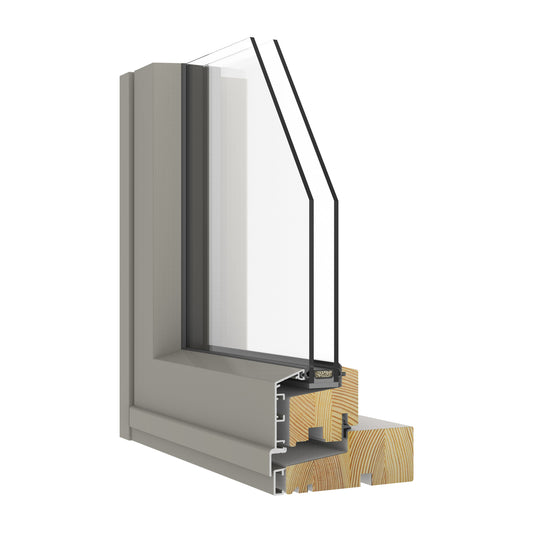
Collection: Composite Windows
Aluminium-clad timber composite windows – often referred to simply as ‘composite windows’ - are timber frame windows clad in a protective powder-coated shell.
They are designed to maximise the benefits of both materials. Composite windows offer an excellent compromise between the performance, warmth, and classic charm of timber, and the contemporary appeal of aluminium.
"Combining the warmth and beauty of wood with the minimal maintenance of aluminium"
Ready to get started? Call the team now on 01202 632777
-
Energy Efficiency
Thermal performance drives everything we do. Certified passive house performance with verified window U-values as low as 0.64 W/m²K.
-
Superior Quality
Precision-engineered timber-aluminium composite windows specifically designed for passive house and ultra-low energy projects, with proven performance in certified developments.
-
People & Expertise
Our team brings specialized passive house knowledge and certification experience, providing technical guidance that goes far beyond standard fenestration.
-
Customer Service
Dedicated support throughout your passive house journey, from initial specification through certification completion, ensuring your project achieves its performance targets.
-
Bespoke Products
Custom solutions for unique passive house challenges, engineered to eliminate thermal bridges while meeting your exact design and performance requirements.
-
Specification to Installation
No distributors, no coordination headaches. Complete support from passive house specification to installation.
Our Composite Windows Range
Composite windows, also known as alu-clad windows, comprise of a timber frame overlaid with a powder-coated aluminium profile externally.
Originally designed to improve the life expectancy of traditional timber windows, today’s alu-clad windows are now known to offer more than merely an improved lifespan.
-
Outward Opening Alu-Clad Window (P11A)
Regular price £0.01 GBPRegular priceUnit price / per -
Outward Opening Alu-Clad Window (P21A)
Regular price £0.01 GBPRegular priceUnit price / per -
Outward Opening Alu-Clad Window (P31A)
Regular price £0.01 GBPRegular priceUnit price / per -
Outward Opening Alu-Clad Window (P32A)
Regular price £0.01 GBPRegular priceUnit price / per -
Inward Opening Alu-Clad Window (P33A)
Regular price £0.01 GBPRegular priceUnit price / per -
Outward Opening Alu-Clad Window (P41A)
Regular price £0.01 GBPRegular priceUnit price / per -
Inward Opening Alu-Clad Window (P44A)
Regular price £0.01 GBPRegular priceUnit price / per
Explore our full windows range
Our Window Selector lets you explore every window in our range. Filter by glazing type, frame material, opening options, and Passive House suitability to find exactly what your project needs.
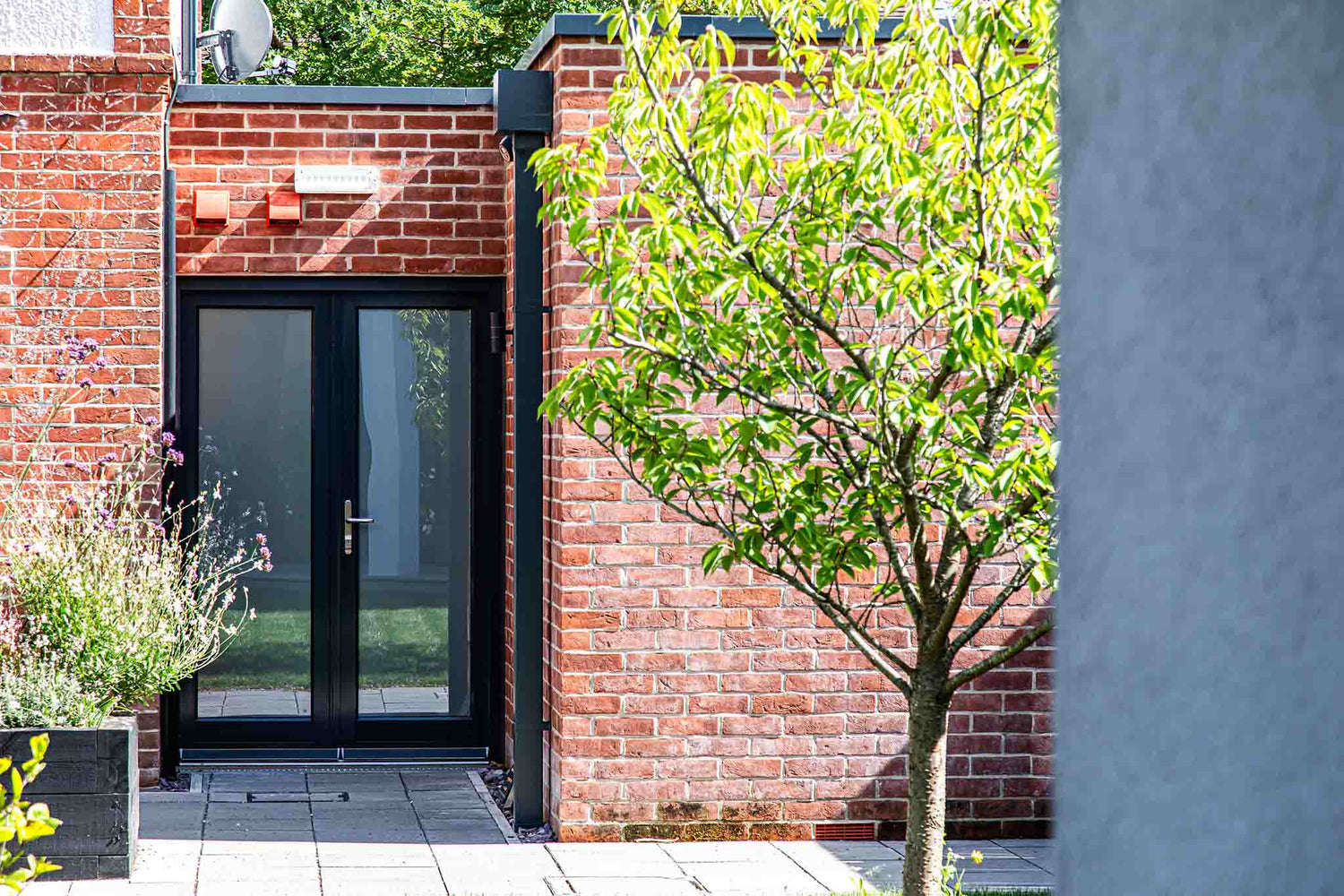
Composite Doors
Extend exceptional composite performance throughout your home. From impressive entrance doors to expansive sliding systems, our composite doors deliver the same exceptional performance as our windows.
Experience precision-engineered timber protected by virtually maintenance-free aluminum cladding - creating doors that operate effortlessly while maintaining their beauty and performance for decades.
Which windows are right for you?
Take our short survey to discover the perfect windows for your project.
Inspiration for your project
From heritage transformations to scandinavian-style passive houses, discover how Norrsken windows and doors transform exceptional homes into extraordinary spaces.
Whether it's converting industrial barns into a contemporary sanctuary or pushing the boundaries of sustainable design in passive houses, our projects span every architectural vision. See how our windows and doors brought your Norrsken neighbours' visions to life.
GALLERY
Advantages of Composite
When compared to all-aluminium, all-timber and uPVC products, composite windows provide numerous advantages.
Norrsken's stylish timber frames are simply more thermally efficient than all-aluminium or uPVC products. The streamlined powder-coated exterior of our composite windows has near-zero maintenance requirements – whereas all-timber windows can require involved maintenance to last, and even uPVC windows require more upkeep than alu-clad models.
The lifespan of composite models usually exceeds that expected for competition products. In terms of production, thermal performance and disposal, they are more sustainable and - environmentally – the obvious fenestration solution. The blend of materials used to manufacture our composite windows deliver exclusive hybrid properties superior to all-aluminium, all-timber, all-UPVC and UPVC-alu-clad products.
Collapsible content
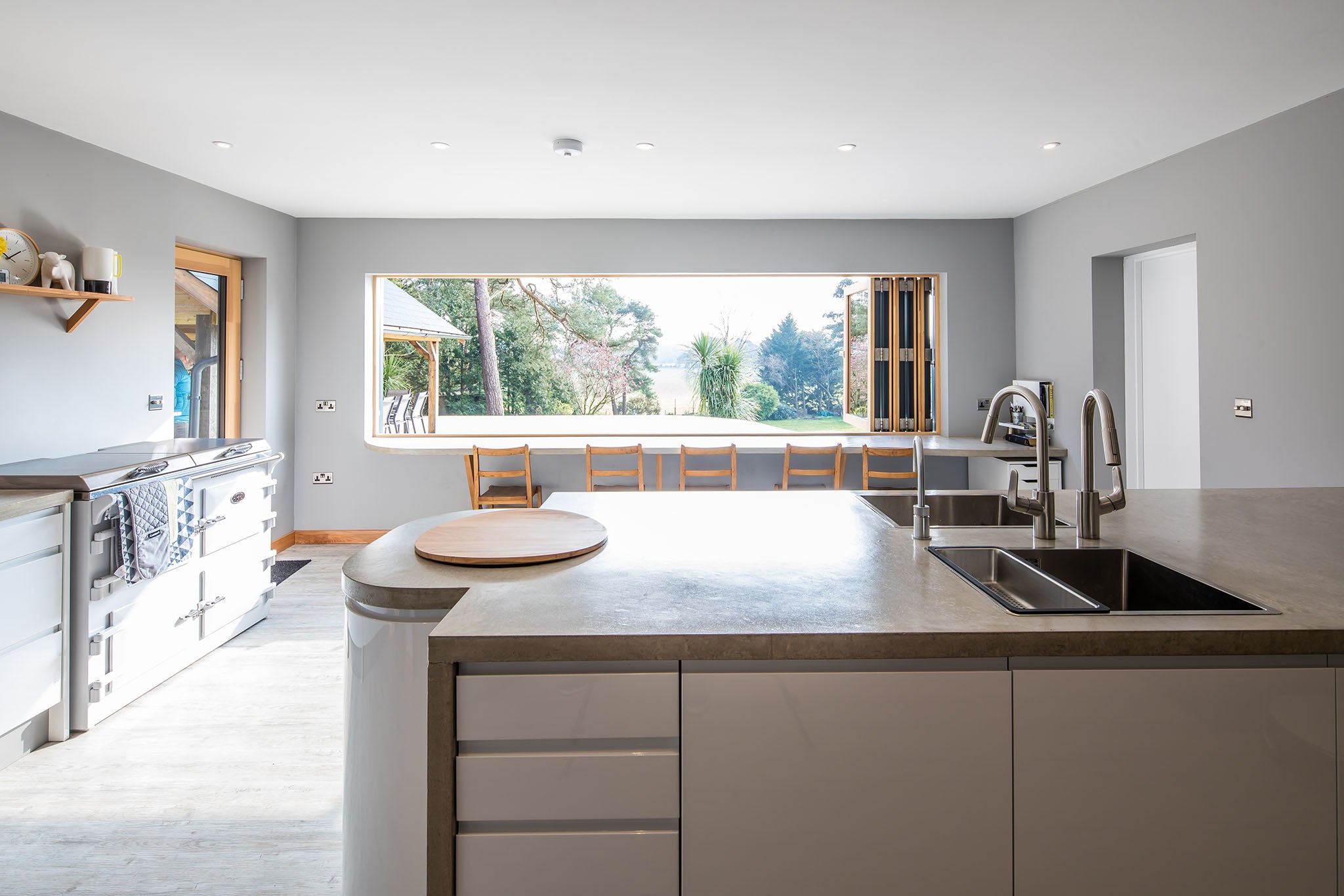
Sustainability
Over their lifespan, the superior thermal performance of high performance composite windows will significantly lower your projected energy usage.
With alarming increases in energy prices and an ever-growing emphasis on low-carbon building, the energy efficiency of composite windows only continues to grow in importance as time goes on. Installing high performance triple-glazed composite windows is a well established criterion of Passive, EnerPHit and other low-energy building standards and a key contributor to the overall thermal envelope of your home.
Sustainability is also a key factor to consider here.
The components, construction processes and waste associated with composite vs. other windows are all worth considering. uPVC windows are made from fossil-fuel-based plastics, implicate high emissions during manufacturing and are difficult to recycle.
By contrast, our products are made only from FSC and PEFC - certified timber - both renewable and biodegradable. Aluminium can be completely recycled and the production methods and waste materials from producing composite windows are much more environmentally friendly than windows and doors made from uPVC or Aluminium.
For example, sawdust produced from the manufacturing process is used for heating. You can read more about the environmental impact of wood vs uPVC windows here.
Investment
To be clear, composite alu-clad timber windows will cost more than most other window types on the market.
That said, you can expect the initial investment in triple-glazed composite windows to be recouped in the long term – and more quickly than by any other inferior window type. This occurs because, over the course of their lifespan, energy efficient windows will lower your overall energy usage significantly – and implicit in lower energy usage is lower cost.
Furthermore, the value added to your home by composite windows easily outstrips any feasibly added by a cheap uPVC installation.
Lifespan
There is no set lifespan, but you can expect your composite windows (if properly maintained) to have a lifecycle of up to double that of uPVC windows, around 50 years.
Composite windows are much easier to repair than uPVC models. A damaged uPVC window will usually need replaced, whereas undertaking minor repairs to either timber or aluminium is relatively simple and will prolong the anticipated lifespan of your windows.
Laminated timber is a much more robust material than uPVC or aluminium. Our products come with laminated glass as standard for glazed entry doors and multiple locking points to both windows and doors. Forced ingress is extremely difficult due to the solid and unyielding nature of the timber - all our composite products conform to PAS 24:2016 enhanced security performance requirements for doors and windows in the UK.
Style & Flexibility
The best composite windows use high-grade powder-coated aluminium, typically considered to be the highest quality finish for an aluminium window.
As well as being low-maintenance and weather resistant, alu-cladding can be finished in any RAL colour. You can specify textured finishes, or marine grade powder-coating for properties in coastal or exposed locations.
Internally, the timber frame can again be finished in any RAL colour or in an attractive lacquer to highlight the beauty of natural wood. You can have distinct colours internally and externally – known as dual colour finish.
Composite windows offer unrivalled stylistic options. Your order is completely bespoke - from the glass type and colours you choose down to the window mechanism. Hinge systems can be configured in several ways. The frame dimensions, thickness, shape, and opening system of your products are all bespoke to your order.
Composite windows are the perfect aesthetic compromise between sleek aluminium and warm, characterful wood.
Create Something Distinct
Every Norrsken order is unique. Beyond custom dimensions and precision manufacturing, we provide the design flexibility to perfectly express your vision.
From custom shapes and specialized hardware to powder-coated trims and distinct hardware - find the finishes you need, whatever your project specification.
OPTIONS
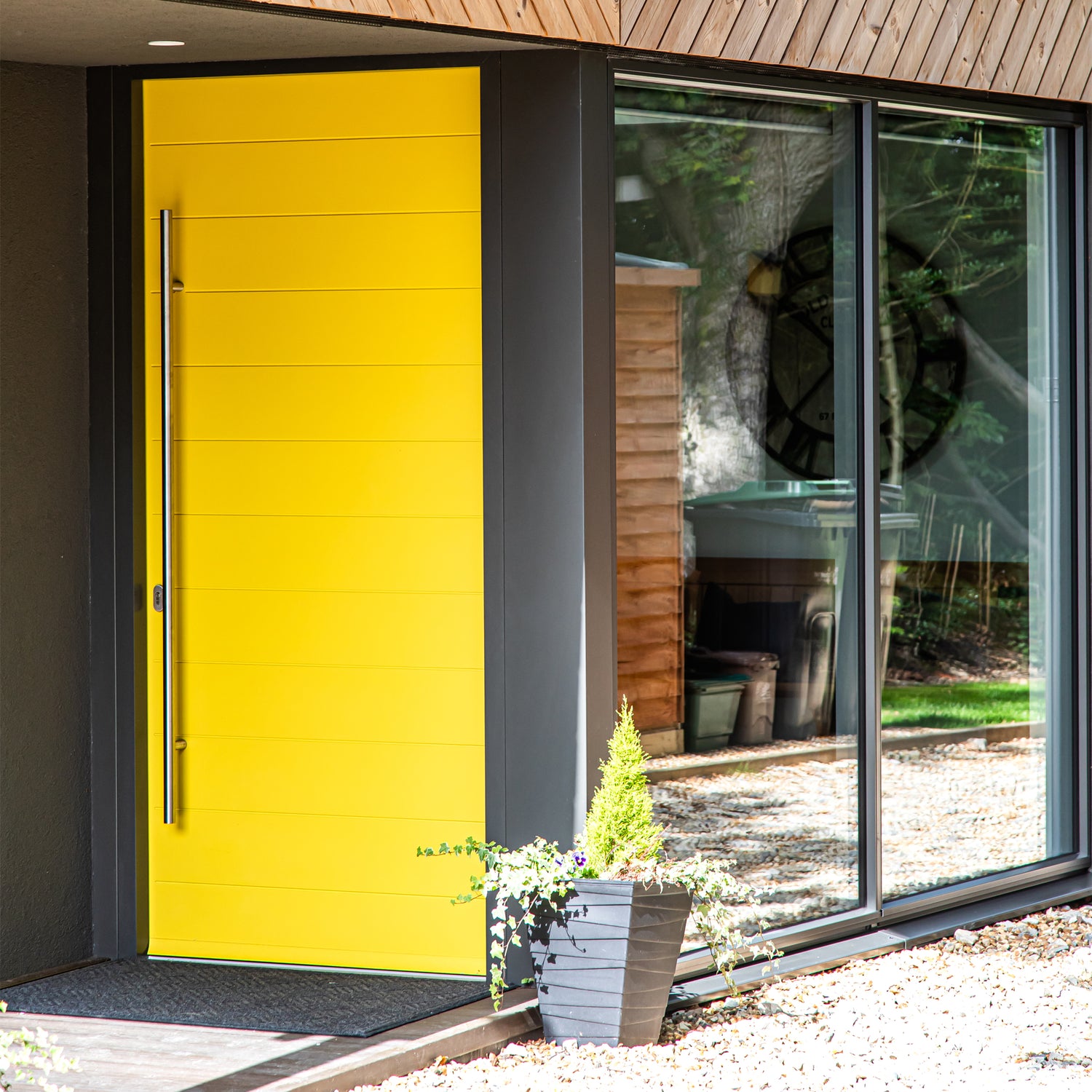
Colours & Finishes
Complete design freedom to perfectly match your architectural vision.
Choose from solid colours or natural finishes with dual-colour options available on virtually every product – select one colour externally and another internally using any RAL specification.
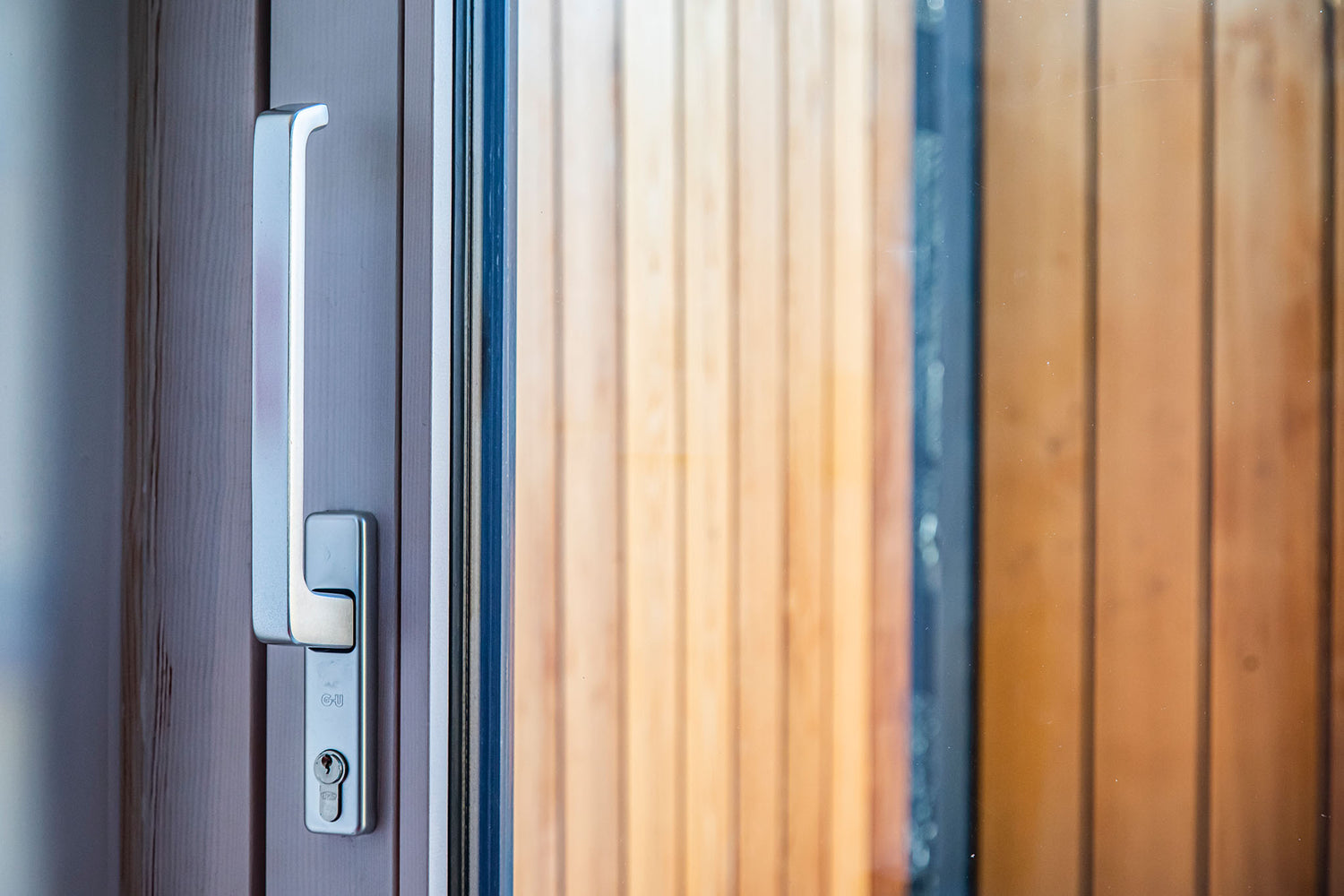
Handles & Hardware
Our curated hardware selection combines exceptional functionality with aesthetic flexibility.
While some components are product-specific for optimal performance, we offer extensive customization across styles, colors, and finishes.
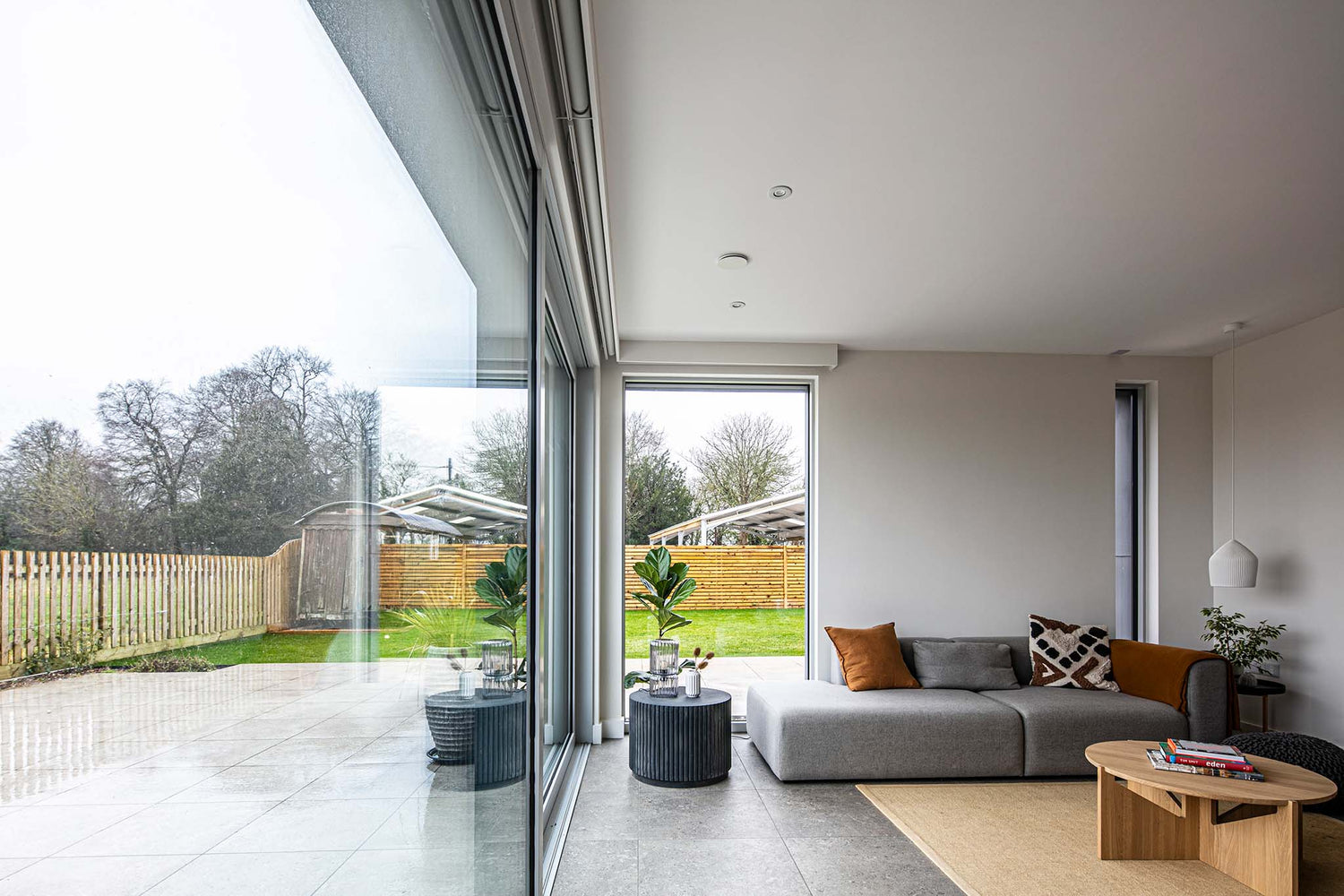
Glass Options
Advanced glazing solutions engineered for optimal comfort and performance.
Our comprehensive glass selection provides complete flexibility including double and triple glazing, solar control, and obscure options. Glass delivers the highest insulation performance in any window - with proper specification, you can maximize beneficial solar gain while preventing overheating.
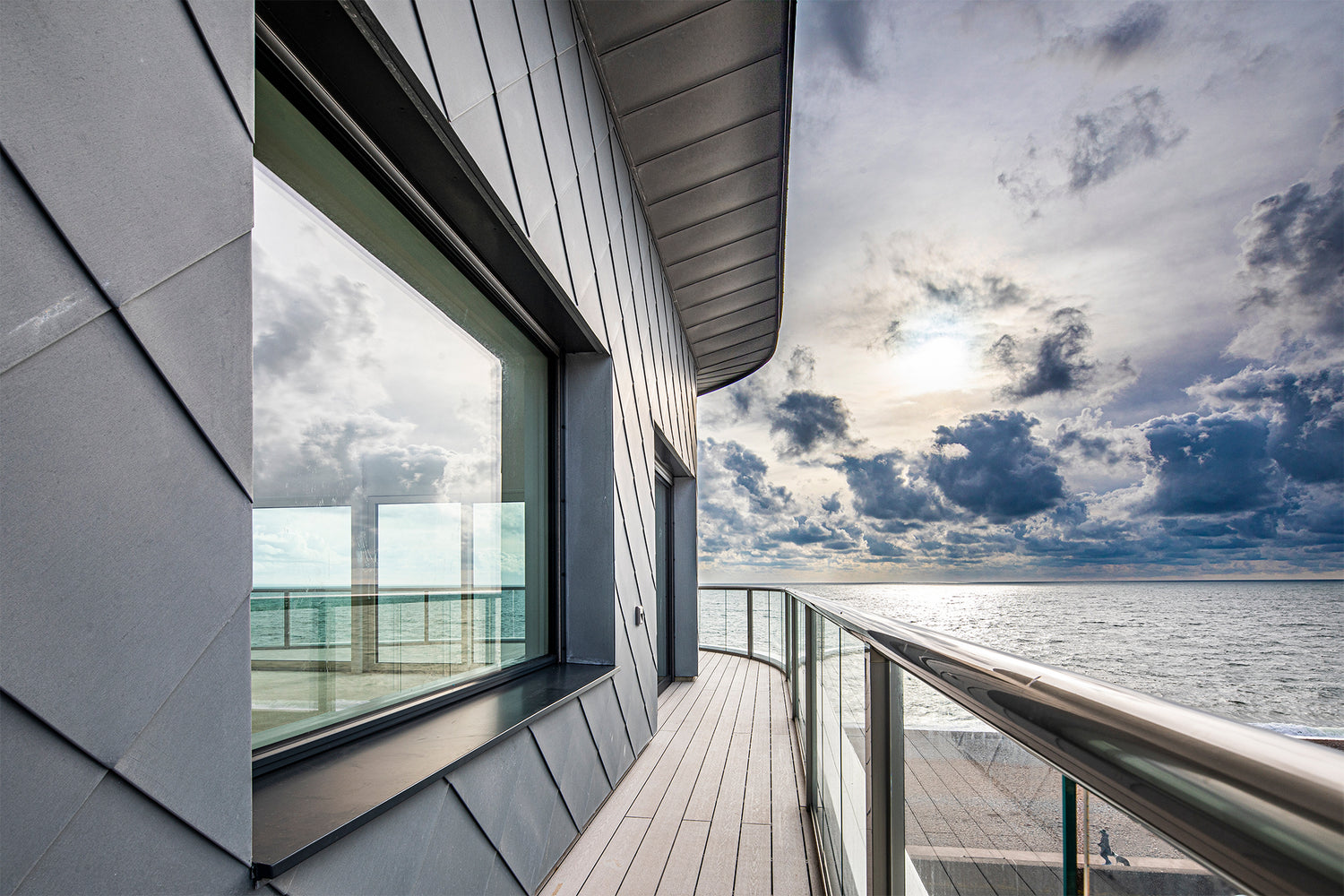
Marine Finish
Marine-grade finishing for projects within 1,500 meters of the sea, ensuring exceptional durability in challenging coastal environments.
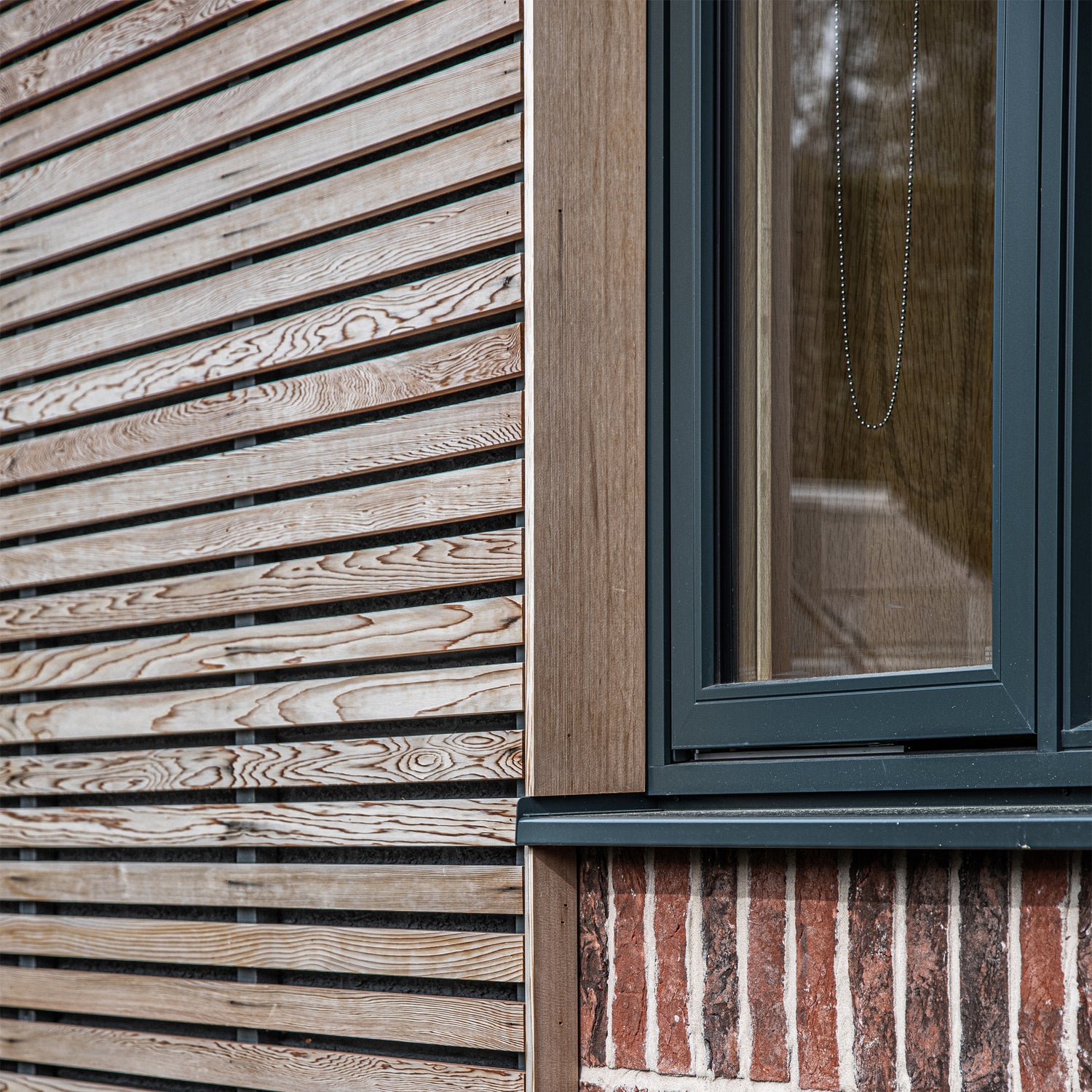
Sills & Trims
Bespoke sills and precision trims for unique architectural features. Specialized solutions including steel beam coverings and complex junction details.
Your Questions Answered
Have a question? You're not alone. We've answered some of the most common questions about below, drawing from years of expertise helping homeowners and professionals achieve their vision.
Can't find what you're looking for? Email the team.
Collapsible content
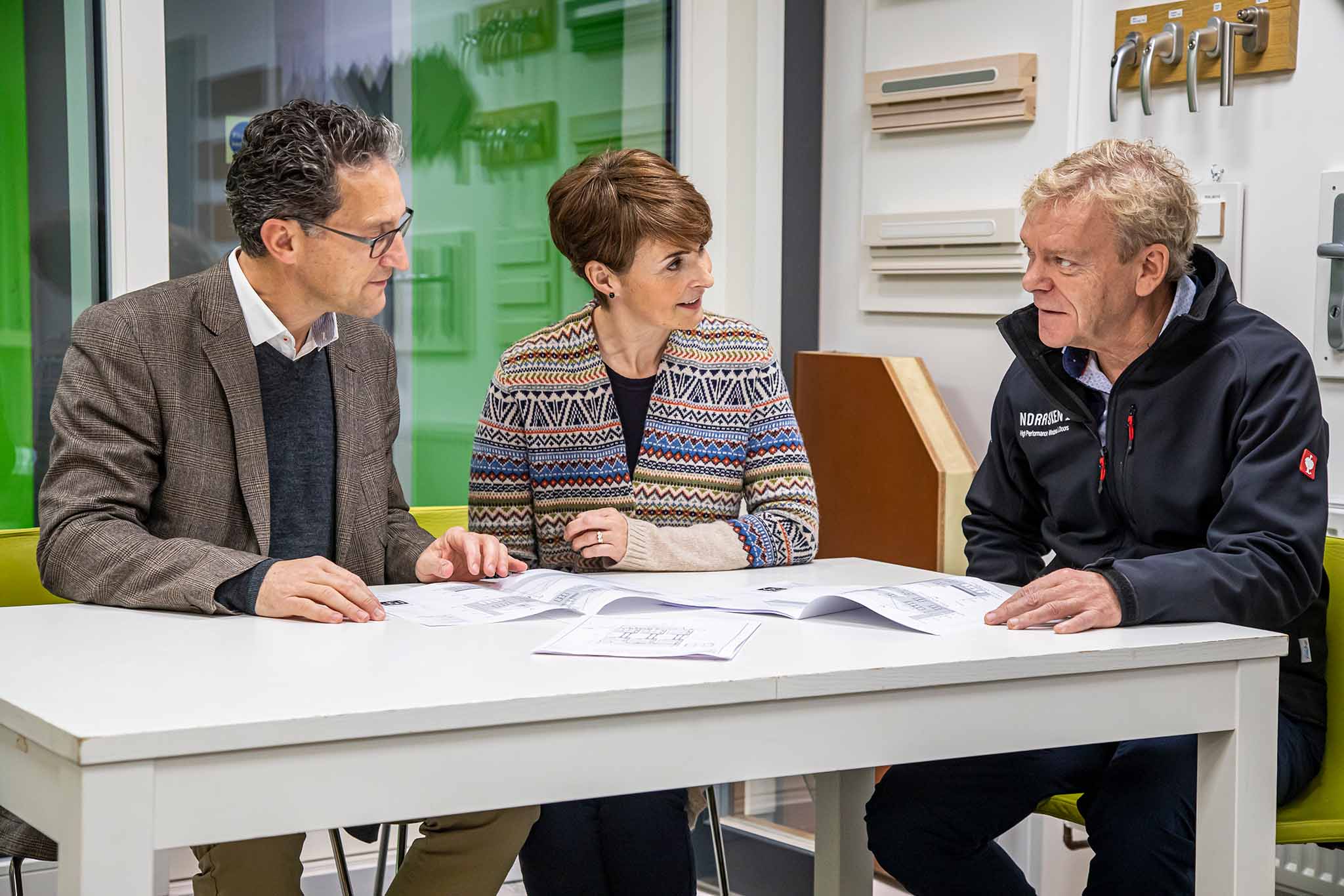
What are composite windows?
Composite windows are manufactured by combining two different materials, which together provide hybrid properties.
There are currently two main types on the market - aluminium-clad timber windows and aluminium-clad uPVC windows.
What are the benefits of composite windows?
Timber aluminium composite windows are very energy efficient, with U-values lower than 0.8 W/(m²K).
This makes a home more comfortable and cheaper to heat in the long run. They are customisable, better for the environment than uPVC and all-aluminium windows and last significantly longer.
Aluminium-clad timber or aluminium-clad uPVC?
We recommend timber composite windows for their many advantages over uPVC.
Including the durability and strength of engineered timber, better insulation and U-values than UPVC windows, a longer lifespan and the potential value increase to a property.
Are composite windows worth it?
Composite windows tend to be more expensive than uPVC models.
They offer a wider range of benefits including better thermal performance, aesthetic appeal, a longer lifespan, use of more environmentally friendly materials and lower maintenance. They are certainly the smarter choice for a well-insulated home in the long run.
Can composite windows be painted?
Our aluminium-clad timber composite windows can be finished in any RAL colour with a powder-coated finish.
Dual colour finish - different colours inside and out - is available as standard, so there is no shortage of options when choosing the colour of your windows! Internally the windows can be repainted later if desired.
What does composite mean?
A composite material is composed from at least two or more constituent materials.
The individual materials used to form the composite generally have very different chemical and / or physical properties and remain identifiable within the composite. The combination of the component parts results in a material that has unique properties and is superior to the individual elements.
Are composite windows better than uPVC?
Timber composite windows usually exceed uPVC alternatives in thermal performance, have a much longer lifespan than uPVC windows and have a lower carbon footprint.
Energy savings over this period make timber composite windows the more cost-effective option long term, even though uPVC windows are cheaper to buy. (Source: Researchgate)
Are composite windows better than aluminium windows?
While all-aluminium frames are strong and light, aluminium is a very poor insulating material.
Timber-aluminium composite windows provide the best of both aluminium and timber - aesthetic appeal, low maintenance, exceptional thermal performance and low U-values, which translates to lower heating bills. They also last longer and are more likely to add value to the property, although they tend to cost more.
What’s the difference between timber and timber composite windows?
The insulation properties of wood makes it by the best choice for window frames.
Timber composite windows have an additional layer of aluminium cladding over the timber window frame. This protects the window from the elements, extends its lifespan and requires almost no maintenance.
How long do composite windows last?
With proper maintenance, composite windows can last upwards of 50 years.
A considerable uplift from the 20-odd year lifespan of uPVC windows.
Helpful Resources
-

The performance gap: why installation matters a...
Avoiding performance gaps in high-performance builds - why installation quality determines window performance.
The performance gap: why installation matters a...
Avoiding performance gaps in high-performance builds - why installation quality determines window performance.
-

Is triple glazing worth it in 2026?
All you need to know about triple glazed windows in 2026. Cost-benefit analysis, Future Homes Standard compliance, and expert guidance.
Is triple glazing worth it in 2026?
All you need to know about triple glazed windows in 2026. Cost-benefit analysis, Future Homes Standard compliance, and expert guidance.
-

What era is your home? A quick guide to UK windows
Identify your home's “generation” and understand what typically suits it – from Elizabethan leaded lights to contemporary walls of glass.
What era is your home? A quick guide to UK windows
Identify your home's “generation” and understand what typically suits it – from Elizabethan leaded lights to contemporary walls of glass.
-

How to order Passive House windows
Guidance to make confident decisions about suppliers for your Passive House project.
How to order Passive House windows
Guidance to make confident decisions about suppliers for your Passive House project.
Debug: is_article_page = false
Debug: current_article_id = 0
Debug: search_tags = triple-glazed
Debug: search_query = triple-glazed
Debug: Total articles found = 21
Debug: Post limit = 4
Debug: Posts exceed limit = true
Debug: Article 1: The performance gap: why installation matters as much as the window from
Debug: Article 2: Is triple glazing worth it in 2026? from
Debug: Article 3: What era is your home? A quick guide to UK windows from
Debug: Article 4: How to order Passive House windows from
Debug: Article 5: Telegraph Home of the Year from

